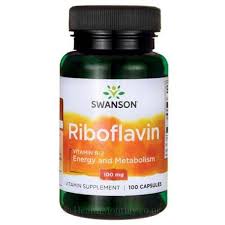Application of Riboflavin
Oct 30,2019
Riboflavin is a B vitamin. It is involved in many processes in the body and is necessary for normal cell growth and function. It can be found in certain foods such as milk, meat, eggs, nuts, enriched flour, and green vegetables. Riboflavin is frequently used in combination with other B vitamins in vitamin B complex products.

Application
Some people take riboflavin by mouth to prevent low levels of riboflavin (riboflavin deficiency) in the body, for various types of cancer, and for migraine headaches. It is also taken by mouth for acne, muscle cramps, burning feet syndrome, carpal tunnel syndrome, and blood disorders such as congenital methemoglobinemia and red blood cell aplasia. Some people use riboflavin for eye conditions including eye fatigue, cataracts, and glaucoma.
Some people also take riboflavin by mouth to maintain healthy hair, skin, and nails, to slow aging, for canker sores, multiple sclerosis, memory loss including Alzheimer's disease, high blood pressure, burns, liver disease, and sickle cell anemia.
Preventing and treating low riboflavin levels (riboflavin deficiency). In adults and children who have too little riboflavin in their body, taking riboflavin by mouth can increase levels of riboflavin in the body.
Riboflavin is required for the proper development of many things in the body including the skin, lining of the digestive tract, blood cells, and brain function.
Safety concerns
Riboflavin is LIKELY SAFE for most people when taken by mouth. In some people, riboflavin can cause the urine to turn a yellow-orange color. It may also cause diarrhea.
Special precautions & warnings
Children: Riboflavin is LIKELY SAFE for most children when taken by mouth in appropriate amounts as recommended by the Food and Nutrition Board for the National Institute of Medicine (see dosing section below).
Pregnancy and breast-feeding: Riboflavin is LIKELY SAFE when taken by mouth and used appropriately for pregnant or breast-feeding women. The recommended amounts are 1.4 mg per day for pregnant women and 1.6 mg per day in breast-feeding women. Riboflavin is POSSIBLY SAFE when taken by mouth in larger doses, short-term. Some research shows that riboflavin is safe when taken at a dose of 15 mg once every 2 weeks for 10 weeks.
Hepatitis, Cirrhosis, Billary obstruction: Riboflavin absorption is decreased in people with these conditions.
- Related articles
- Related Qustion
- Riboflavin: Producing bacteria; Benefits and Targeted Drug Delivery Jan 10, 2024
Riboflavin is an essential, water-soluble vitamin (B2) and a component of basic cellular metabolism.
- The Benefits of Riboflavin Nov 23, 2022
The passage introduces the benefits of Riboflavin.
Cimetidine is a stomach acid reducer that is used to treat and prevent certain types of stomach ulcer. Cimetidine is also used to treat gastroesophageal reflux disease (GERD), when stomach acid backs up into the esophagus and causes heartbu....
Oct 30,2019APIIf you look at the ingredients of insecticides you might be forgiven for being confused by what the difference is between pyrethrum, pyrethins, pyrethroids and permethrin. Some say they contain pyrethrum, some say they contain pyrethrins, s....
Oct 30,2019Chemical pesticides ?Riboflavin
83-88-5You may like
- What is 1,2,4-Trichlorobenzene used for?
Jun 3, 2024
- 1,4-Dichlorobenzene: Uses and Hazard
Jun 3, 2024
- What does 2,2'-Dichlorodiethyl ether do?
Jun 3, 2024
- Vitamin B2/Riboflavin
-

- $152.00 / 1Kg/Bag
- 2024-06-03
- CAS:83-88-5
- Min. Order: 1Kg/Bag
- Purity: 0.99
- Supply Ability: 20 tons
- Vitamin B2 Riboflavin
-

- $180.00 / 1kg
- 2024-05-31
- CAS:83-88-5
- Min. Order: 1kg
- Purity: 99%
- Supply Ability: 20ton
- Riboflavin
-

- $0.00 / 25kg
- 2024-05-31
- CAS:83-88-5
- Min. Order: 25kg
- Purity: 98.0%~102.0%
- Supply Ability: 10tons




